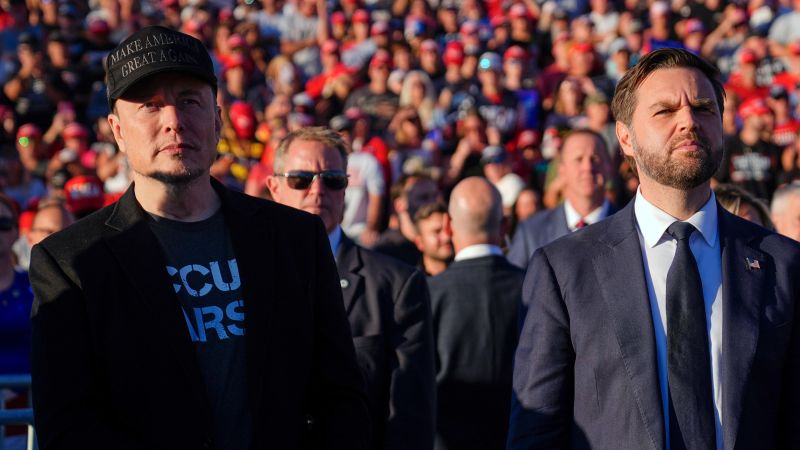In a recent podcast hosted by comedian Theo Von, Vice President JD Vance expressed his disbelief in response to comments made by Tesla CEO Elon Musk, who suggested that Donald Trump ought to be impeached and that Vance should succeed him as president. During the podcast, Vance rolled his eyes and remarked, “Oh, my God,” making it clear that he found Musk’s statements to be unhelpful and out of line. This interaction highlights the tension between figures within the Republican Party and the complex dynamics at play when it comes to political loyalty, criticism, and collaboration.
Vance’s reaction to Musk’s outburst suggests a broader concern regarding the current political environment. He emphasized that politics requires unity and cooperation. Vance pointed out, “This stuff is just not helpful,” indicating that such incendiary comments foster division rather than pave the way for constructive discourse. He elaborated on the necessity of teamwork in politics, arguing that without a commitment to work together, little can be accomplished. This sentiment encapsulates a more traditional view of political conduct, where alliance-building and collective action are paramount.
Moreover, Vance’s engagement with the situation was notably diplomatic. When responding to Musk’s incendiary remarks, he refrained from escalating the conflict, instead choosing to defend Trump against the allegations. He asserted, “Absolutely not. Donald Trump didn’t do anything wrong with Jeffrey Epstein,” aiming to shield the former president from damaging insinuations that could arise from Musk’s comments. This stance might have stemmed from a combination of loyalty to Trump and an understanding of the potential fallout for the party should such infighting escalate into a broader feud.
As the podcast recorded in Nashville unfolded, the audience saw Vance react in real-time to Musk’s accusations, which included questionable claims about Trump’s supposed involvement with “the Epstein files.” Vance displayed a degree of genuine surprise and dismay as he read Musk’s controversial post. Commenting on the rapid sequence of Musk’s statements, Vance remarked, “Jeez, man,” reflecting the unexpected nature of the discourse. He recognized that much of the information Musk had disseminated was potentially harmful not just to Trump but to the political landscape as a whole.
Interestingly, before his podcast appearance, Vance had a conversation with Trump in the Oval Office, demonstrating the intricate relationship between these political figures. Sources indicated that Trump had advised Vance to approach any public criticism of Musk with caution and diplomacy. This guidance illustrates the balancing act Vance is performing between remaining loyal to Trump while navigating the unpredictable nature of alliances within the GOP.
Vance’s position appears to be influenced by his previous connections to Musk, who championed Vance’s candidacy and was an ally during the campaign. Their relationship has successfully endured since Vance’s election, suggesting that there is still room for reconciliation despite the current tensions. It was observed that both figures engaged with one another prior to the podcast, possibly in efforts to mend their relationship following Musk’s criticisms.
While acknowledging Musk’s entrepreneurial strengths, Vance cautioned against overtly aggressive tactics directed towards Trump. He noted that such public disputes could have detrimental effects not only for the individuals involved but for the wider American political landscape. Vance indicated that Musk’s frustrations stemming from his recent experiences in the political arena played a role in the fallout between them.
Ultimately, this exchange highlights the nuanced interactions between political leaders and the fragility of their alliances. In a climate where public sentiments can shift rapidly, Vance’s commitment to maintaining loyalty to Trump while navigating the complexities of his relationship with Musk serves as an emblematic representation of the current state of Republican party dynamics. Vance prescribes to an ideal that seeks to bridge divides rather than widen them, a stance that may be increasingly vital as political landscapes continue to evolve.



